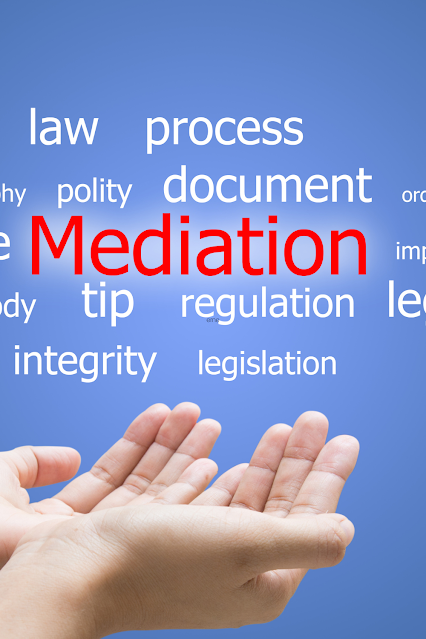Getting divorced can be an overwhelming process, especially if you’re going the traditional route. The time, money, and stress it takes to reach agreements through the courts can make life difficult during the divorce, and what the judge rules can also sometimes make life after the divorce challenging.
There is another option. Instead of going through a divorce
the traditional way, you can use a mediator to reach mutually beneficial agreements in your divorce.
Using a mediator is different from a traditional divorce
because:
·
There is only one mediator
·
It usually costs less
·
You have more control over the timeline
·
You have more control over outcomes
·
You can learn conflict resolution skills
5 Ways Mediation is Different From a Traditional Divorce
There is Only One Mediator
Perhaps the biggest difference between using a mediator and using lawyers in a traditional divorce is that
there is only one mediator.
Your mediator does not act as your attorney or as your
advocate. Instead, it's their job to help you and your ex-spouse brainstorm
ways to move through your divorce cooperatively. They can still provide you
with legal information, but they will not provide individual parties with
advice.
With only one mediator, the process is inherently less
adversarial. Instead of working against each other with your own attorneys, you
work together with a single mediator. Because it is less contentious, it
generally creates a lot less stress.
It Usually Costs Less
A traditional divorce can get expensive. That’s especially
true if there are a lot of disagreements between both parties and the process
drags out for a long time.
In almost every case, mediation costs less than a traditional divorce. There are fewer legal fees and fewer
extra fees when you use a mediator. In some cases, you may be able to find a
mediator who offers their services for a flat fee. That can make budgeting for
your divorce a lot easier.
You can also find mediators who charge by the hour, which
can give you peace of mind knowing that you have plenty of time to work through
the details of your divorce. If cost is important to you, look for non-attorney
mediators, as they typically charge less than attorney-mediators.
You Have More Control Over the Timeline
Divorces can take a long time. The average time to complete
the divorce process with just one dispute is 12 months. Things can drag out even longer if you have
multiple disputes that you’re trying to resolve between attorneys and the
courts.
That’s because you have to work with your attorney’s
schedule, your ex-spouse’s attorney’s schedule, and the judge who is overseeing
your case. Those are all things you don’t have to worry about with a mediated
divorce.
You can reach a fair settlement agreement on your own time
when you use a mediator. It’s up to the two of you, with help from your
mediator, to decide what life is going to look like after your divorce. Because
you don't have to wait on attorneys or judges, it typically unfolds much
faster.
You Have More Control Over Outcomes
Not only do you have more control over the timeline, you
also have more control over outcomes. For example, a judge only considers what they think is best for the child in a traditional
divorce. When you use a mediator, you can come to a mutual agreement that is
best for your entire family.
Having more control over the outcomes in your divorce means
you’re more likely to be happy with those outcomes in the long run. It means
less stress too, because a mediator helps you feel like you’re in the driver’s
seat with complete control over your own life.
You Learn Conflict Resolution Skills
Using a mediator requires you to communicate with your
ex-spouse directly instead of doing it through your attorneys. You’re able to
get everything out in the open and learn conflict resolution skills in the process, which will make any future communications
go much more smoothly.
That’s especially helpful if you and your spouse must
continue to communicate after the divorce is over. Organizing activities for
children or running a business is a lot easier after a divorce if you both
learn how to work through issues on your own.
Mediation isn’t right for everyone, but if you think you and
your ex-spouse can sit down together and come up with mutually beneficial
agreements with the right support, you can save a lot of time, money, and
stress by turning to a mediator.
Related: Did You Know These 10 Shocking Facts About Anxiety?



Post a Comment